Fraud Responsible

Can I report telecommunications fraud to any authority ?
Telecommunications fraud is a serious issue that can have significant financial and personal consequences for victims. It is important to know where and how to report such incidents to ensure that appropriate action is taken. In this article, we will explore the various authorities to which you can report telecommunications fraud. The Federal Communications Commission (FCC) is the primary agency responsible for regulating interstate and international communications by radio, television, wire, satellite, and cable in the United States. The FBI is responsible for investigating federal crimes, including telecommunications fraud. Each state has an attorney general who is responsible for protecting consumers within their jurisdiction. Local law enforcement agencies also have the authority to investigate complaints and work with other agencies to pursue legal action against those responsible for fraudulent activities.

What are some tips for avoiding telecommunications fraud ?
Telecommunications fraud can have serious consequences, but there are steps you can take to avoid becoming a victim. Be skeptical of unsolicited calls and messages, use strong passwords and two-factor authentication, keep software up-to-date, be cautious with public Wi-Fi networks, and educate yourself about common scams. By following these tips, you can protect your personal information and finances from potential fraud attempts.

How can women avoid falling victim to financial scams and fraud ?
Financial scams and fraud can target anyone, including women. To avoid falling victim to these schemes, it's crucial for women to educate themselves about common scams like phishing, romance, and investment frauds. Safe online habits, such as securing devices and being cautious with personal information, are also essential. Regularly monitoring finances, using credit cards wisely, building a support network of professionals and trusted friends or family, and reporting suspected fraud immediately are further protective measures. Staying informed and vigilant significantly reduces the risk of financial loss due to scams and fraud.

How can I educate my family about telecommunications fraud ?
Telecommunications fraud is a serious issue that can have devastating consequences for individuals and families. To protect themselves from becoming victims, it's important to educate loved ones about the risks and ways to avoid them. Here are some steps to follow: Understanding Telecommunications Fraud: Make sure everyone understands what telecommunications fraud entails and how it works. This includes phishing scams, vishing attacks, smishing schemes, and tech support scams. Recognizing Red Flags: Educate your family on the common signs of telecommunications fraud, such as urgency, unexpected requests, too good to be true offers, threats or intimidation. Prevention Tips: Share prevention tips with your family to help them avoid falling prey to scams. These include staying informed, verifying sources, securing devices, using anti-fraud tools, being cautious online, limiting personal exposure, and reporting suspected fraud. Action Plan: Create an action plan for your family in case they encounter a potential fraud attempt. This includes stopping and thinking before acting impulsively, consulting family members for a second opinion, contacting authorities if convinced it's a scam, and documenting everything related to the suspected fraud for future reference.

How can I protect myself from telecommunications fraud ?
Telecommunications fraud is a serious issue that can have devastating consequences for victims. It involves unauthorized access to personal and financial information through various communication channels such as phone calls, text messages, emails, and social media platforms. To protect yourself from telecommunications fraud, you should be wary of unsolicited calls and messages, use strong passwords and two-factor authentication, keep your devices and software up-to-date, be cautious with financial transactions, educate yourself and stay informed about the latest scams and fraudulent activities. By following these tips, you can significantly reduce your risk of falling victim to telecommunications fraud.

What are the most common types of telecommunications fraud ?
Telecommunications fraud is a serious issue that affects millions of people worldwide. It involves using technology to deceive individuals or organizations for financial gain. Here are some of the most common types of telecommunications fraud: 1. Phishing Attacks: In this type of attack, cybercriminals send fraudulent emails or messages that appear to be from a legitimate source, such as a bank or a government agency. The message typically asks the recipient to click on a link or provide sensitive information, such as login credentials or credit card details. Once the victim provides the requested information, the attacker can use it to access their accounts and steal money or personal data. 2. Vishing Attacks: In this type of attack, cybercriminals use automated phone calls or live callers to trick victims into providing sensitive information over the phone. The attacker may pretend to be from a legitimate organization, such as a bank or a government agency, and ask for personal information or payment for a fake service. 3. Smishing Attacks: Smishing, or SMS phishing, is a relatively new form of telecommunications fraud that involves sending fraudulent text messages to victims' mobile devices. These messages often claim to be from a legitimate source, such as a bank or a government agency, and ask for sensitive information or payment for a fake service. Unlike traditional phishing attacks, which rely on email, smishing attacks use SMS messages to reach victims directly on their mobile devices.

How can I prevent my personal information from being used in telecommunications fraud ?
To protect your personal information from telecommunications fraud, follow these steps: be cautious with personal information, use strong passwords and two-factor authentication, keep software and devices updated, be wary of suspicious emails and links, and educate yourself about common scams. By taking these precautions, you can reduce the risk of falling victim to telecommunications fraud.

How can I recover from telecommunications fraud ?
In summary, to recover from telecommunications fraud, one should immediately report suspicious transactions to their bank or financial institution, file a police report, and consider alerting relevant agencies. It's essential to protect personal information, update security measures, and educate oneself and others about scams. Legal action may be necessary for significant losses, and strengthening online security is crucial for future protection.

What is credit monitoring and why is it important in credit management ?
Credit monitoring is the process of tracking and analyzing a borrower's credit history, including payment behavior, outstanding debts, and changes in credit scores. It is important for early warning signals of potential default or delinquency, accurate risk assessment, fraud prevention, customer relationship management, and compliance with regulations. By continuously monitoring a borrower's credit history, lenders can update their risk assessments, prevent fraud, tailor their products and services to better meet their customers' requirements, and ensure they are meeting regulatory requirements.

What are some signs that I may be a victim of telecommunications fraud ?
Telecommunications fraud is a serious issue with significant financial and emotional consequences. It's important to be aware of the signs that you may be a victim, such as unrecognized charges on your phone bill, unfamiliar phone calls or messages, changes to your service settings, suspicious account activity, and new accounts opened in your name. To protect yourself, contact your service provider immediately if you notice any suspicious activity, change your passwords regularly, monitor your accounts closely, and consider additional security measures such as two-factor authentication.
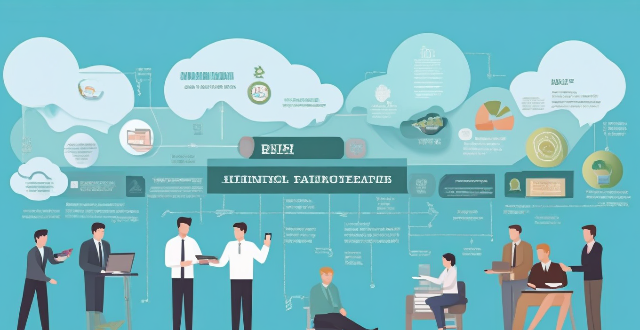
What role does TCFD play in promoting responsible investing ?
The Task Force on Climate-related Financial Disclosures (TCFD) is crucial for responsible investing as it provides a framework for companies to disclose their climate-related risks and opportunities. This helps investors make informed decisions about the potential impact of climate change on their investments, leading to more sustainable practices and long-term success. TCFD benefits include transparency, risk management, opportunity identification, alignment with Sustainable Development Goals (SDGs), and enhanced reputation.

How can TCFD disclosures help in attracting responsible investments ?
The Task Force on Climate-related Financial Disclosures (TCFD) was established by the Financial Stability Board (FSB) to develop voluntary, consistent global climate-related financial risk disclosures. These disclosures provide investors with a clearer understanding of how companies are managing climate-related risks and opportunities, which can help attract responsible investments. Here's how: ## Clarity in Risk Management ### **Enhanced Transparency** TCFD disclosures require companies to clearly outline their strategies for managing climate-related risks. This transparency allows investors to assess the effectiveness of a company's risk management practices and make informed investment decisions. ### **Risk Identification** Companies must identify and report on the specific climate-related risks they face, such as physical impacts from extreme weather events or transition risks associated with policy changes. This information helps investors evaluate potential impacts on future earnings and cash flows. ## Alignment with Sustainable Goals ### **ESG Criteria** Environmental, social, and governance (ESG) criteria are becoming increasingly important to investors. TCFD disclosures provide detailed information on environmental aspects, helping investors gauge a company's commitment to sustainability. ### **Strategic Alignment** Companies that integrate climate risks into their strategic planning demonstrate a proactive approach to sustainability. This alignment with long-term sustainable goals can be attractive to responsible investors seeking to support businesses committed to positive environmental impacts. ## Performance Tracking ### **Progress Metrics** TCFD recommendations include reporting on metrics that track progress towards managing climate risks. These metrics allow investors to monitor a company's performance over time and assess its ability to adapt and thrive in a changing climate. ### **Scenario Analysis** Companies are encouraged to provide scenario analyses showing potential financial impacts under different climate scenarios. This forward-looking information is crucial for investors looking to understand how a company might perform under various climate change outcomes. ## Stakeholder Engagement ### **Active Dialogue** TCFD disclosures often involve engaging with stakeholders, including investors, on climate-related issues. This active dialogue fosters trust and can lead to more collaborative relationships between companies and investors focused on responsible investing. ### **Feedback Integration** By incorporating feedback from stakeholders, including investors, companies can improve their disclosures and strategies, further aligning themselves with the expectations of responsible investment communities. ## Long-Term Value Creation ### **Sustainable Business Models** TCFD disclosures encourage companies to consider how they can create long-term value by embracing sustainable business models. Investors looking for responsible investments are likely to be drawn to companies that demonstrate a commitment to sustainability and resilience. ### **Innovation Opportunities** Disclosures also highlight areas where climate change presents opportunities for innovation and growth. Responsible investors may see these opportunities as promising avenues for investment, particularly in sectors like clean energy or green technologies.

How do TV networks deal with unauthorized leaks and spoilers for their shows ?
TV networks employ various strategies to handle unauthorized leaks and spoilers, including security measures like watermarking and encryption, monitoring online platforms for leaks, taking legal actions against those responsible for significant leaks, collaborating with partners to ensure secure distribution, and educating viewers on responsible viewing habits. These efforts aim to maintain control over content and protect the viewing experience for audiences globally.
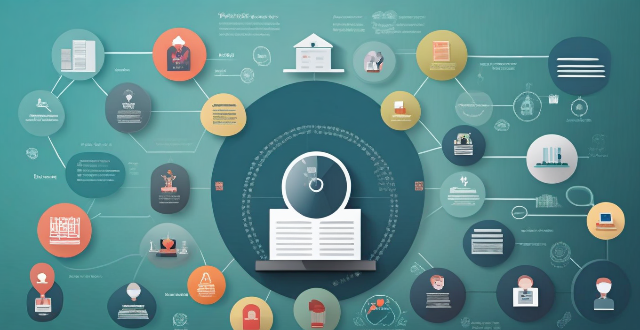
How do ESG criteria influence socially responsible investing ?
The article explores the influence of ESG criteria on socially responsible investing (SRI) and why it matters for investors. ESG criteria refer to a set of standards used by investors to evaluate the sustainability and ethical impact of a company or investment, covering environmental, social, and governance factors. These criteria play a crucial role in shaping SRI strategies, helping investors make informed decisions that align with their values and manage risks effectively. Incorporating ESG criteria into investment decisions has several benefits, including risk mitigation, long-term returns, reputation management, and regulatory compliance. Overall, ESG criteria provide a framework for evaluating potential investments and ensuring that they align with an investor's goals while supporting sustainability and ethical practices.

Who is responsible for paying off the climate debt ?
The concept of "climate debt" refers to the cumulative emissions of greenhouse gases by developed countries, which have contributed significantly to global warming and its associated impacts. This debt implies a moral and ethical obligation on the part of these countries to take action to mitigate and adapt to climate change, as well as to support developing nations in doing the same. Key Points: - Historical Emissions: Developed countries are primarily responsible for climate change due to their long history of high GHG emissions. - Economic Capacity: Wealthier nations have greater financial resources to invest in climate solutions. - Technology and Innovation: Developed countries often lead in technological advancements that can help reduce emissions and build resilience. - International Agreements: Under the United Nations Framework Convention on Climate Change (UNFCCC), developed countries have committed to providing financial and technical support to developing countries. - Loss and Damage: Developing countries, especially those most vulnerable to climate impacts, require assistance from wealthier nations to cope with losses and damages. - Equity and Justice: Addressing the climate debt is a matter of intergenerational and international equity and justice.

How can we promote responsible tourism and reduce our carbon footprint while traveling ?
Responsible tourism is a concept that encourages travelers to be aware of the environmental, social, and economic impacts of their actions while on vacation. It's about making conscious choices that minimize negative effects and maximize positive ones. Here are some ways to promote responsible tourism and reduce your carbon footprint: - Choose eco-friendly accommodations like green hotels or community-based tourism initiatives. - Use public transportation, walk or bike around your destination. - Minimize water usage and cut down on plastic waste. - Recycle and properly dispose of waste. - Support local communities by buying local products and respecting local culture and customs. - Consider offsetting your flight emissions through carbon offset schemes or supporting environmental projects. - Educate yourself and others about sustainable travel practices. By incorporating these practices into your travels, you can significantly reduce your carbon footprint and contribute to a more sustainable form of tourism.

What are the benefits of effective credit management for businesses ?
Effective credit management is crucial for businesses to maintain a healthy cash flow, reduce financial risks, and ensure long-term success. Key benefits include improved cash flow through reduced payment delays, prevention of bad debts, and better negotiation power; increased financial stability with lower interest expenses, improved access to financing, and enhanced investor confidence; greater competitive advantage through stronger customer relationships, higher market share, and improved reputation; and risk mitigation via reduced fraud risk, compliance with regulations, and risk assessment.

How can governments encourage and improve financial literacy among citizens ?
Governments can encourage financial literacy by implementing education programs, offering accessible financial services, and enforcing consumer protection regulations. This will help citizens make informed decisions about their money, investments, and debts.

What is credit management ?
Credit management is the process of managing and controlling the use of credit by individuals or businesses. It involves evaluating borrowers' creditworthiness, determining the amount of credit to extend, monitoring loan repayment, and taking action for late payments. Key components include credit analysis, evaluation, loan monitoring, collections management, risk management, and customer relationship management. Effective credit management benefits include reduced default risk, improved cash flow, increased customer satisfaction, and enhanced reputation.
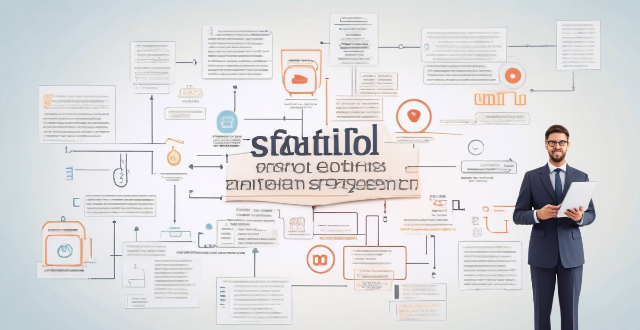
How does Fintech enable faster and more secure payments ?
Fintech has revolutionized payment systems by making them faster and more secure. Instant transfers, mobile payments, and automated options have streamlined the process, while encryption, tokenization, two-factor authentication, and fraud detection systems have enhanced security. These advancements benefit both individuals and businesses.

How can smart contracts improve supply chain management ?
Smart contracts can revolutionize supply chain management by automating transactions, enhancing transparency, improving efficiency, enabling real-time tracking, and reducing risks. This decentralized and automated approach can save time, reduce costs, prevent fraud, and improve overall trust between parties in the supply chain.

How can businesses benefit from implementing digital identity solutions ?
Digital identity solutions offer businesses enhanced security, improved customer experiences, increased efficiency, and scalability. They reduce fraud risks, protect data, streamline onboarding, personalize services, automate processes, and provide reliable data for better decision-making. These benefits help businesses stay compliant with regulations, save costs, and adapt to evolving technology.

How does digital identity verification work in online transactions ?
Digital Identity Verification in Online Transactions: A Comprehensive Guide Digital identity verification is a crucial aspect of online transactions, ensuring the authenticity and security of users. This process involves collecting personal information, verifying it against reliable sources, employing multi-factor authentication, using encryption techniques, and implementing monitoring systems to detect fraudulent activities. By following these steps, businesses can protect their customers' sensitive data and maintain trust in the digital marketplace.

What happens if my Cross-Border Payment transaction fails ?
If your cross-border payment transaction fails, itIf your cross-border payment transaction fails, it reasons such as insufficient funds it can be due to several reasons such as insufficient funds, invalid recipient information, transfer limit exceeded, technical issues, or fraud detection. It is important to identify the reason behind it and take appropriate action to resolve the issue and complete the transaction successfully.
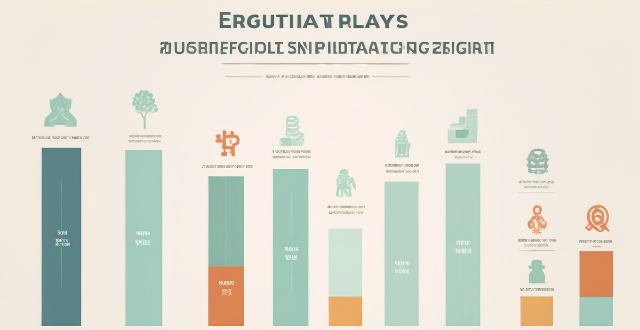
How does financial regulation affect the economy ?
Financial regulation plays a crucial role in the economy by ensuring stability, promoting fairness, and protecting consumers. It helps maintain stability by reducing systemic risks, promotes fairness by enforcing laws against fraudulent activities and protecting consumer interests, and supports economic growth by supporting infrastructure development, promoting access to finance, and encouraging foreign investment. Striking a balance between regulation and market freedom is essential for long-term prosperity.
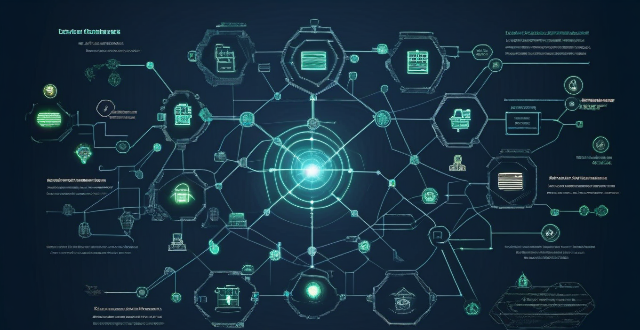
What is the future of blockchain beyond cryptocurrency ?
This article explores the potential applications of blockchain technology beyond cryptocurrency, highlighting key areas such as decentralized finance (DeFi), supply chain management, healthcare, government services, and intellectual property rights management. It emphasizes how blockchain can improve transparency, security, efficiency, and accessibility in these sectors through features like peer-to-peer transactions, smart contracts, tokenization, traceability, interoperability, data privacy, identity management, public records storage, voting systems, proof of ownership, streamlined licensing, and fraud prevention. The article concludes by stating that the future prospects of blockchain technology are vast and promising, offering numerous opportunities for innovation and transformation across various industries.

Can blockchain technology help combat climate change ?
Blockchain technology can contribute to the fight against climate change by enhancing transparency, efficiency, and traceability in areas such as carbon credit trading, renewable energy management, and sustainable supply chain management. However, challenges related to scalability, energy consumption, and regulation must be addressed to fully realize its potential benefits.

What role do technology and innovation play in improving sustainability within supply chain management ?
Technology and innovation are crucial for enhancing sustainability in supply chain management. They enable real-time monitoring, process optimization, energy efficiency, waste reduction, and transparency. By adopting these advancements, businesses can create environmentally friendly operations while maintaining profitability.

How is AI changing the field of finance and banking ?
AI is revolutionizing the finance and banking industry by improving efficiency, accuracy, and customer experience while streamlining risk management processes. AI-powered algorithms can analyze vast amounts of data quickly and accurately, leading to faster and more informed decisions. Automated processes save time and reduce human error. Fraud detection is enhanced by analyzing patterns in customer behavior and transactions. Personalized customer experience is provided through detailed profiling and predictive analytics. Risk management is streamlined with credit risk assessment and market risk analysis.

What should I do if I receive a suspicious call or message ?
Receiving a suspicious call or message can be unsettling and potentially dangerous. It is important to take appropriate measures to protect yourself and your personal information. The steps you should take when you encounter such situations are: 1. Remain calm and assess the situation objectively. 2. Do not share any personal information with the caller or sender of the message. 3. End the call or delete the message without engaging in any conversation. 4. Block the number or email address that contacted you. 5. Report the incident to the appropriate authorities, such as your local police department or the Federal Trade Commission (FTC). 6. Be vigilant and educate others about the risks of sharing personal information over the phone or through messages. By following these steps, you can minimize the risk of falling victim to scams and fraud attempts.